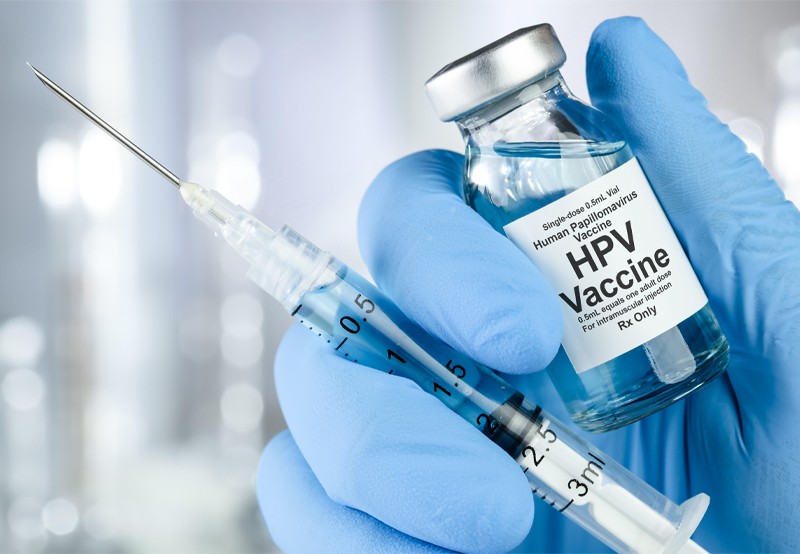In a move to address the pressing issue of cervical cancer, the Federal Government is set to initiate a nationwide Human Papillomavirus (HPV) vaccination campaign for girls aged nine to 14. This campaign, scheduled to commence on October 24, 2023, is poised to be a game-changer in the country’s healthcare landscape. Cervical cancer has been a formidable health challenge, and the introduction of the HPV vaccine is a beacon of hope in the fight against this burden. By immunizing young girls at an early age, the government aims to shield them from the most common HPV strains responsible for cervical cancer later in life.
The campaign is set to be executed in two phases, with the first phase encompassing 16 states: Abia, Adamawa, Akwa Ibom, Anambra, Bauchi, Bayelsa, Benue, Enugu, Jigawa, Kano, Lagos, Nasarawa, Ogun, Osun, Taraba, and the Federal Capital Territory, Abuja. The second phase is planned for the first quarter of 2024, covering the remaining states, ensuring that girls across the country have access to this crucial vaccine.
Cervical Cancer: A Silent Epidemic
Cervical cancer is a serious health concern, ranking as the second most common cancer among women and the second most frequent cause of cancer-related deaths among women aged 15 to 49. The scale of this issue is underscored by the fact that Nigeria alone contributes an estimated 12,075 new cases of cervical cancer to the global statistics annually.
Faisal Shuaib, the Director-General of the National Primary Healthcare Development Agency, emphasized the gravity of the situation. “HPV infection has been identified as a high-risk factor, implicated in 95 percent of cervical cancer cases. With 12,000 new diagnoses and 8,000 lives claimed each year, it translates to 33 new cervical cancer cases and 22 deaths every day in our nation,” he stated.
Cervical cancer is a disease that takes a heavy toll on the lives of women. It’s a tragedy that one precious life is lost every two minutes to this preventable disease. Unfortunately, cervical cancer ranks among the leading causes of cancer-related deaths in 36 countries, including Nigeria.
A Beacon of Hope: The HPV Vaccination Campaign
The introduction of the HPV vaccination campaign is seen as a beacon of hope in the relentless fight against cervical cancer. It underscores the government’s unwavering commitment to improving the health and well-being of its citizens, particularly young girls who represent the future of the nation.
The HPV vaccine is a powerful tool in the prevention of cervical cancer. It works by targeting the Human Papillomavirus, a group of viruses that can lead to the development of cervical cancer. By vaccinating girls aged nine to 14, the government is taking a proactive approach to reduce the risk of cervical cancer later in life.
Global Efforts to Combat Cervical Cancer
The World Health Organization (WHO) has long advocated for HPV vaccination as part of a comprehensive strategy to combat cervical cancer. This initiative aligns with international efforts to reduce the burden of this disease. The WHO recommends vaccination for girls aged 9 to 14 as part of their global strategy to eliminate cervical cancer.
The HPV vaccine has been shown to be highly effective in reducing the risk of cervical cancer, and its introduction into Nigeria’s healthcare system is a significant step toward a healthier future for the nation’s women.
Government’s Commitment to Preventive Healthcare Measures
The launch of this nationwide HPV vaccination campaign demonstrates the government’s dedication to preventive healthcare measures. Preventing diseases before they become widespread is a cost-effective and compassionate approach to healthcare. The campaign is part of the government’s broader mission to reduce the burden of cervical cancer on the healthcare system and the lives of its people.
The fight against cervical cancer is a complex battle, but the introduction of the HPV vaccination campaign is a clear and decisive step forward. By proactively protecting young girls against the most common HPV strains responsible for cervical cancer, the government is taking a critical step in the right direction.
As the campaign is rolled out, it is expected to significantly reduce the incidence of cervical cancer, ultimately saving lives and easing the burden on the healthcare system. This comprehensive approach to public health is a testament to the government’s commitment to the well-being of its citizens and a brighter future for the women of Nigeria.



